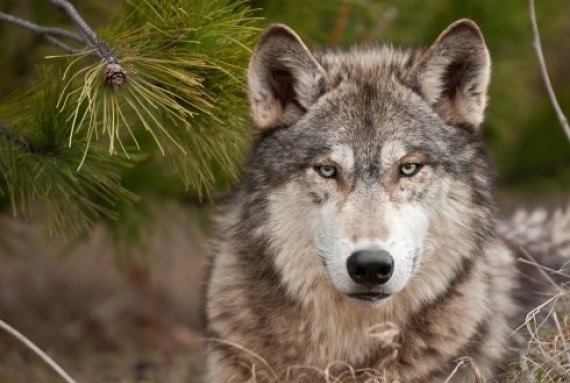The Luttelgeest wolf has been the talk of the town – or the media at any rate – for weeks. Alterra ecologist Geert Groot Bruinderink, who is working on a ‘wolf plan’ for the Netherlands, looks back on a tumultuous month.
Relieved it turned out not to be a fake?
‘We still don’t know this for sure. We can trace the animal back to a pack of wolves in the Carpathians; we have genetic evidence for that. But it’s still possible that somebody took the wolf with them and planted it in Luttelgeest. The isotope investigation, which is still in progress, should give more information. I can’t wait for the results.’
Critics say it is not likely that the animal would travel so far. Is that true?
‘I’ve always though it would be wolves from the German-Polish population that came here. Contrary to all expectations, it turns out to be one from the Carpathians, nearly a thousand kilometres from here. But it’s possible. Distances like that are no problem for a wolf. All of a sudden the Netherlands is full of wolf experts, who all need to have their say. That’s fine but all the evidence points at the animal making its own way here. The blood was still fresh, the coat showed no signs of lying there a long time. Six wolf’s droppings were found in the vicinity.’
All of a sudden the Netherlands is full of wolf experts
Geert Groot Bruinderink
The first wolf we get and it has an accident. Does this show there is no future for wolves in the Netherlands?
‘No. We don’t know if this was the first one. If one has been found, we can expect more. The packs are moving towards the Netherlands much faster than we thought. You will only know whether there are more wolves when you see sheep systematically being killed in a particular area. That’s a real sign. They risk getting run over but that won’t stop them settling here. After all, thousands of foxes, deer, boars and badgers get run over every year.’
De wolven huilen in het bos
What does this wolf mean for the embryonic wolf plan?
‘The ministry is putting more pressure on us and the plan has to be completed two months earlier. We have had loads of phone calls over the past month. It caused a huge commotion – I was really surprised. The discovery of this wolf has shown how important it is to have clear protocols. For example, the place where a wolf is discovered should be treated like a crime scene. We didn’t even go there this time. That’s the weak link in this affair. But there have to be the resources for that. That will certainly feature in the plan.’


